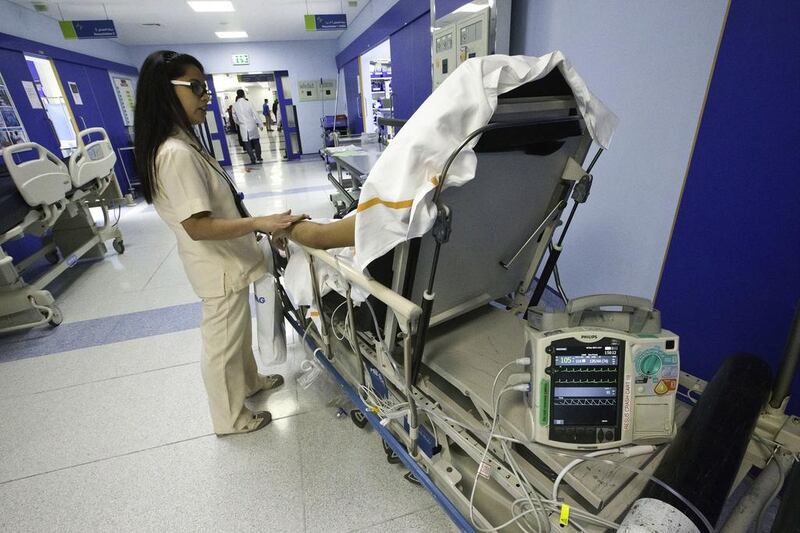Local investors are expected to help private healthcare providers to expand in Dubai in the next six years as demand grows with the population.
The emirate’s private healthcare sector will need US$1.5 billion by 2020 to provide the required 1,500 new hospital beds, according to a report from Colliers International yesterday.
The private healthcare sector in the UAE as a whole will require US$2.87bn worth of investment in the next six years and 2,632 more beds.
“More than half of the expansion will be led by established, local players as they have a history and banks and IPO options are open to them,” said Mansoor Ahmed, the director of health care at Colliers. “New [providers], especially from Europe, India and the Far East, are interested in entering the market.”
The consultancy said that the number of local investors willing to build and develop hospitals that they can then lease to operators for a 15- to 20-year contract has risen over the past two to three years.
“A number of landlords and investors are willing to build hospitals and clinics that would substantially decrease the investment from operators and encourage new development,” Mr Ahmed said.
And these investors are looking to put in anywhere between Dh200 million and Dh300m in both old and new areas of Dubai. Colliers, which also acts as a broker, said it had six mandates to find operators for such projects. It typically requires Dh350m to build and equip a hospital in Dubai.
Colliers expects two local healthcare players to publicly list shares in the next two years.
Dubai’s Aster DM Healthcare, for example, has been studying an initial public offering. The health care and education investment company Amanat Holdings plans to raise Dh1.37bn in an IPO this month on the Dubai Financial Market and is already lining up acquisitions.
A shortage of beds in the maternity and child-care segments is expected as the sector expands.
“That’s because Dubai has the fastest-growing population, and more investment in super-speciality hospitals as confidence grows [among] local players,” Mr Ahmed said.
Dubai’s ratios for physicians, nurses and beds per 1,000 people are among the highest in the Arabian Gulf but still lower than in many developed countries.
“Over time, the public sector will push non-acute care into the private sector and the private sector will continue to invest in hospitals, which is acute care, but will take over more of the non-acute care services,” said Dr Helmut Schühsler, the chairman and chief executive of TVM Capital Healthcare in Dubai.
The company plans to invest $200m in the next two to three years in its existing companies, which include the infertility treatment clinic Bourn Hall International, as well as looking at deals in the UAE, Saudi Arabia, Qatar, Turkey, India and Egypt.
The major challenge to the expansion of private health care in Dubai is finding enough qualified doctors and nurses.
“Funding has never been a problem, even for the private players, but the challenge is in availability of healthcare professionals, especially in Abu Dhabi as the hiring process is lengthy and can take six to nine months. This is a barrier to entry,” Mr Schühsler said.
The 1,500 new beds needed in Dubai would require about 3,000 more doctors, and their salaries account for a major chunk of a hospital’s revenue.
“Salaries form the single largest expense in operating costs; ideally it should be 25 to 30 per cent of the costs but in some cases it goes up to 40 per cent in most Gulf countries,” Mr Ahmed said. “The physician salaries will continue to rise unless there is a concentrated approach to have more medical and nursing colleges in the region.”
Almost 79 per cent of the 28 hospitals in Dubai are in the private sector, with 97 per cent of the 1,348 clinics as of 2012 also private.
ssahoo@thenational.ae
Follow The National's Business section on Twitter





